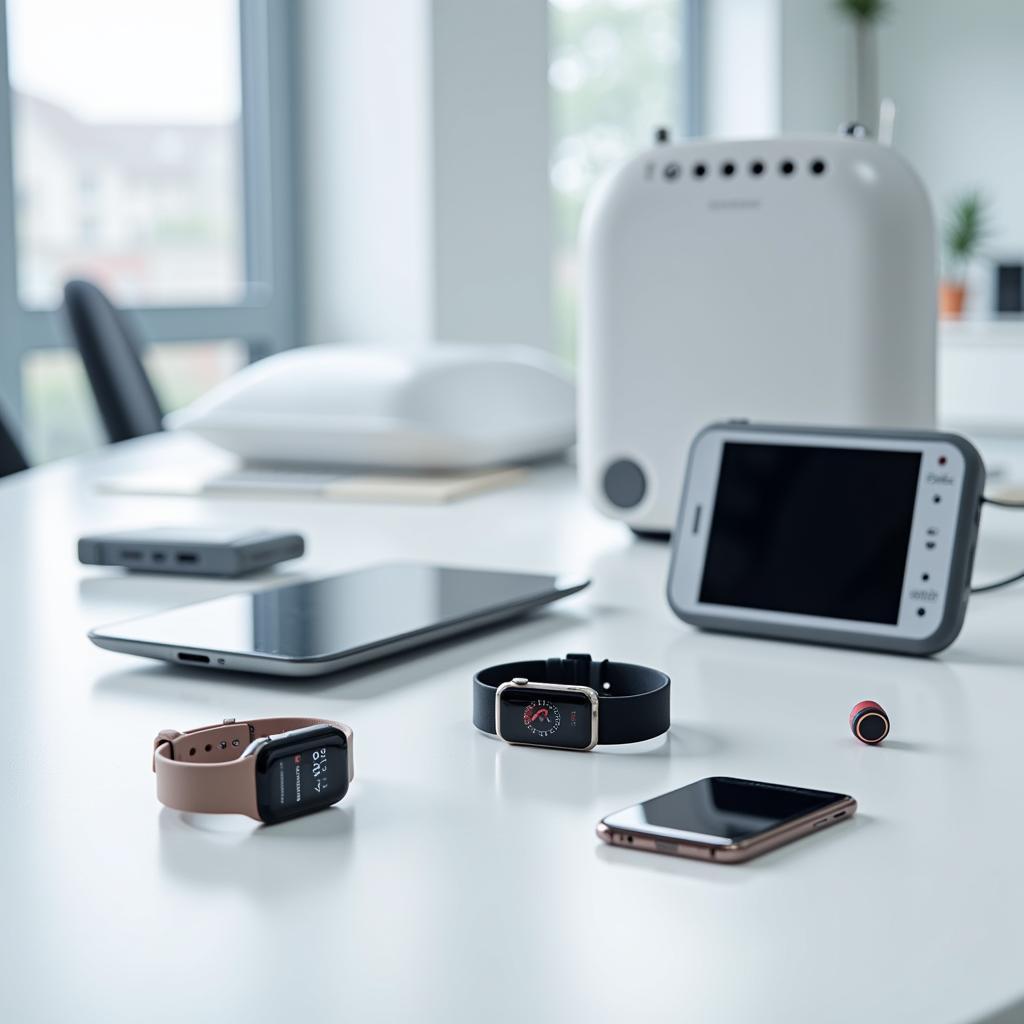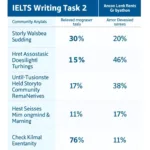The topic of wearable technology and health monitoring has become increasingly prevalent in IELTS Writing Task 2 examinations, particularly in the last 2-3 years. Based on analysis of past papers and current technological trends, this theme is likely to appear more frequently in future tests, especially in questions about technological advancement and healthcare accessibility. How technological advancements are changing healthcare access has become a key focus in recent examinations.
 Modern wearable technology devices for health monitoring displayed on table
Modern wearable technology devices for health monitoring displayed on table
Analysis of Task 2 Question
Some people believe that wearable technology devices have revolutionized personal health monitoring and improved overall healthcare outcomes. Others argue that over-reliance on these devices can lead to anxiety and unnecessary medical consultations. Discuss both views and give your opinion.
This question requires candidates to:
- Examine both positive and negative aspects of wearable health technology
- Present balanced arguments for each perspective
- Provide a clear personal stance supported by evidence
- Draw relevant conclusions
Sample Essay 1 (Band 8.5)
The proliferation of wearable health monitoring devices has sparked considerable debate regarding their impact on healthcare outcomes. While these devices have undoubtedly transformed personal health management, concerns about their psychological effects warrant careful consideration.
On the positive side, wearable technology has fundamentally revolutionized how individuals monitor and manage their health. These devices provide real-time data on vital health metrics, enabling users to make informed decisions about their lifestyle and seek timely medical intervention when necessary. For instance, smartwatches can detect irregular heart rhythms and alert users to potential cardiac issues before they become critical. Furthermore, role of technology in elderly independence has been particularly significant, as these devices can monitor fall risks and automatically alert caregivers in emergencies.
However, critics argue that constant health monitoring can foster excessive health anxiety. Some users become obsessed with checking their metrics, leading to unnecessary stress and frequent medical consultations for minor variations in their readings. Additionally, there are concerns about the accuracy of these devices, which might result in false alarms or misguided self-diagnosis.
In my opinion, while the potential for anxiety exists, the benefits of wearable health technology significantly outweigh the drawbacks. How technology is improving healthcare access in remote areas demonstrates how these devices can bridge healthcare gaps, particularly in underserved communities. The key lies in proper education about device usage and understanding that these tools should complement, not replace, professional medical advice.
Sample Essay 2 (Band 6.5)
Nowadays, many people use wearable technology to check their health. Some people think it is very good, but others worry about problems it can cause. I will discuss both sides and give my opinion.
First, wearable devices help people know about their health better. People can see their heart rate, steps, and sleep quality every day. This information helps them make better choices about exercise and rest. Also, if something is wrong, they can go to the doctor quickly before getting very sick.
However, some people think these devices cause problems. Many users check their health data too much and get worried even when nothing is wrong. They go to doctors unnecessarily and waste time and money. Some devices also show wrong information sometimes, which can make people confused.
I think wearable technology is mostly good for health but people should use it carefully. Telemedicine and improving healthcare access shows how technology can help people stay healthy. But we should not worry too much about every small change in health data.
Analysis of Band Scores
Band 8.5 Essay Analysis
- Sophisticated vocabulary and complex structures
- Clear progression of ideas with excellent cohesion
- Well-developed arguments with relevant examples
- Precise use of academic language
- Effective conclusion with clear position
Band 6.5 Essay Analysis
- Simple but clear language
- Basic paragraph organization
- Limited range of complex structures
- Some repetition in vocabulary
- Basic development of ideas
Key Vocabulary
- proliferation (n) /prəˌlɪfəˈreɪʃən/ – rapid increase in numbers
- metrics (n) /ˈmetrɪks/ – standard measurements
- interventions (n) /ˌɪntərˈvenʃənz/ – actions taken to improve a situation
- obsessed (adj) /əbˈsest/ – excessively preoccupied with something
- complementary (adj) /ˌkɒmplɪˈmentəri/ – combining in such a way as to enhance
Remember to practice writing your own response to this question and share it in the comments section for feedback. Similar topics might include the impact of artificial intelligence in healthcare or the role of mobile health applications in preventive medicine.


